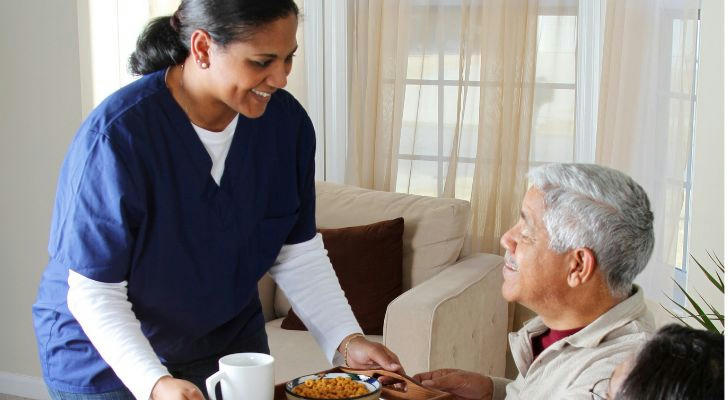Top Skills Every Home Health Aide Should Know
Home Health Aides (HHAs) play a critical role in the healthcare system by supporting patients who need assistance at home. From helping with daily activities to monitoring vital signs, their work is essential for improving patients’ quality of life. But what separates a good HHA from a great one? It comes down to skills — both technical and personal.

Whether you're considering a career as a Home Health Aide or already working in the field, mastering the following skills will help you succeed and make a positive difference in your clients’ lives.
1. Personal Care Skills
At the core of a Home Health Aide’s responsibilities is helping clients with activities of daily living (ADLs). This includes:
- Bathing and grooming
- Dressing and toileting
- Oral hygiene
- Mobility support (e.g., walking, transferring from bed to chair)
- Feeding assistance
Providing this care requires more than physical ability — it demands sensitivity, respect, and a nonjudgmental attitude. Being gentle and patient is just as important as knowing how to perform these tasks safely.
2. Basic Medical Knowledge
While HHAs do not diagnose or prescribe, they need a working understanding of basic medical care, including:
- Checking vital signs (temperature, blood pressure, pulse, respiration)
- Recognizing signs of distress (e.g., shortness of breath, confusion, swelling)
- Following care plans created by nurses or physicians
- Supporting wound care by keeping areas clean and reporting changes
Understanding how the body functions and being able to observe and report changes accurately can make a real difference in a client’s health outcomes.
3. Communication Skills
Home Health Aides often act as a liaison between the client, family members, and medical professionals. Effective communication includes:
- Listening attentively to the client’s needs
- Reporting changes in condition to supervisors
- Explaining tasks in a way that builds trust
- Writing accurate care notes or reports
Clear, respectful communication helps prevent misunderstandings and ensures the client’s care is consistent and safe.

4. Empathy and Compassion
One of the most valuable skills any HHA can have is empathy — the ability to understand what another person is feeling. Many clients are elderly, disabled, or facing serious illness. They may feel vulnerable, frustrated, or isolated.
Showing compassion can involve:
- Sitting and talking with the client when they feel lonely
- Respecting their dignity during personal care tasks
- Being patient when tasks take longer than expected
- Offering emotional support to families
Clients often remember how you made them feel more than what you did for them. A caring attitude goes a long way.
5. Time Management
Home Health Aides often care for multiple clients throughout the day, each with their own schedules and needs. Managing time well ensures nothing is overlooked.
Strong time management includes:
- Arriving punctually for appointments
- Prioritizing tasks (e.g., medication reminders before meal prep)
- Keeping track of schedules for baths, medications, or exercises
- Avoiding rushing, which can lead to mistakes or injuries
Staying organized helps you maintain quality care while reducing stress for both you and your clients.
6. Physical Strength and Stamina
Caring for others can be physically demanding. HHAs often assist clients with walking, lifting, turning in bed, or helping with wheelchairs.
Important physical requirements include:
- The ability to lift 30–50 pounds safely
- Endurance for standing and moving for long periods
- Proper body mechanics to avoid injury (for both the HHA and the client)
Training in safe lifting techniques and practicing good posture are essential for a long and healthy career.
7. Attention to Detail
Whether you're administering medication reminders or noticing a new rash, small details can be critical. Attention to detail means:
- Carefully following care instructions
- Keeping an eye out for subtle health changes
- Documenting food intake, bathroom habits, or mood changes
- Ensuring the home is safe (no spills, trip hazards, or medication mix-ups)
Being thorough helps prevent complications and allows doctors or nurses to respond early to problems.
8. Adaptability
No two days are the same in home healthcare. A client might feel unwell, the family may have new requests, or the schedule might suddenly change.
Adaptability means:
- Staying calm when plans change
- Being willing to perform new tasks within your role
- Adjusting your approach to meet each client’s preferences or personality
Being flexible shows professionalism and helps build trust with both clients and supervisors.

9. Nutrition and Meal Preparation
Many clients rely on their HHAs for help with grocery shopping, cooking, and eating. Understanding basic nutrition helps ensure clients stay healthy.
Key skills include:
- Preparing balanced meals based on dietary restrictions (low-sodium, diabetic-friendly, etc.)
- Monitoring hydration and food intake
- Assisting with feeding, if necessary
- Recognizing signs of malnutrition or dehydration
Good nutrition supports recovery and daily function, especially in elderly or chronically ill patients.
10. Infection Control
In home settings, infection control is often the responsibility of the HHA. Reducing the risk of illness protects both the client and their caregiver.
Important practices:
- Regular handwashing
- Wearing gloves when needed
- Properly cleaning medical equipment or surfaces
- Handling waste and laundry safely
Understanding how infections spread — and how to stop them — is critical in any care environment.
11. Ethics and Professionalism
As a Home Health Aide, you are entrusted with personal details, private health information, and sometimes access to money or medications.
Professionalism includes:
- Maintaining confidentiality
- Respecting boundaries and following agency policies
- Being honest, reliable, and punctual
- Reporting issues without overstepping your role
Clients and families count on you to act with integrity every day.
12. Teamwork
Even though HHAs often work one-on-one with clients, they are still part of a care team that includes nurses, physicians, therapists, and social workers.
Being a good teammate involves:
- Sharing observations and updates
- Accepting feedback or direction
- Supporting other staff when appropriate
- Asking questions when you're unsure
Strong collaboration ensures better care for the client and less stress on everyone involved.
Final Thoughts
Being a Home Health Aide is more than just a job — it’s a profession that requires a unique blend of medical knowledge, personal care skills, and emotional intelligence. If you’re willing to learn, stay patient, and care deeply about others, it can also be one of the most meaningful careers in healthcare.
Whether you're just starting out or looking to improve, developing these top skills will help you become a trusted and valued caregiver. With growing demand for home-based healthcare, well-trained HHAs have a bright future ahead.
If you’re considering this path, explore training programs in your area and look for opportunities to shadow experienced aides. The sooner you build your skills, the sooner you can start making a real impact in people’s lives.
